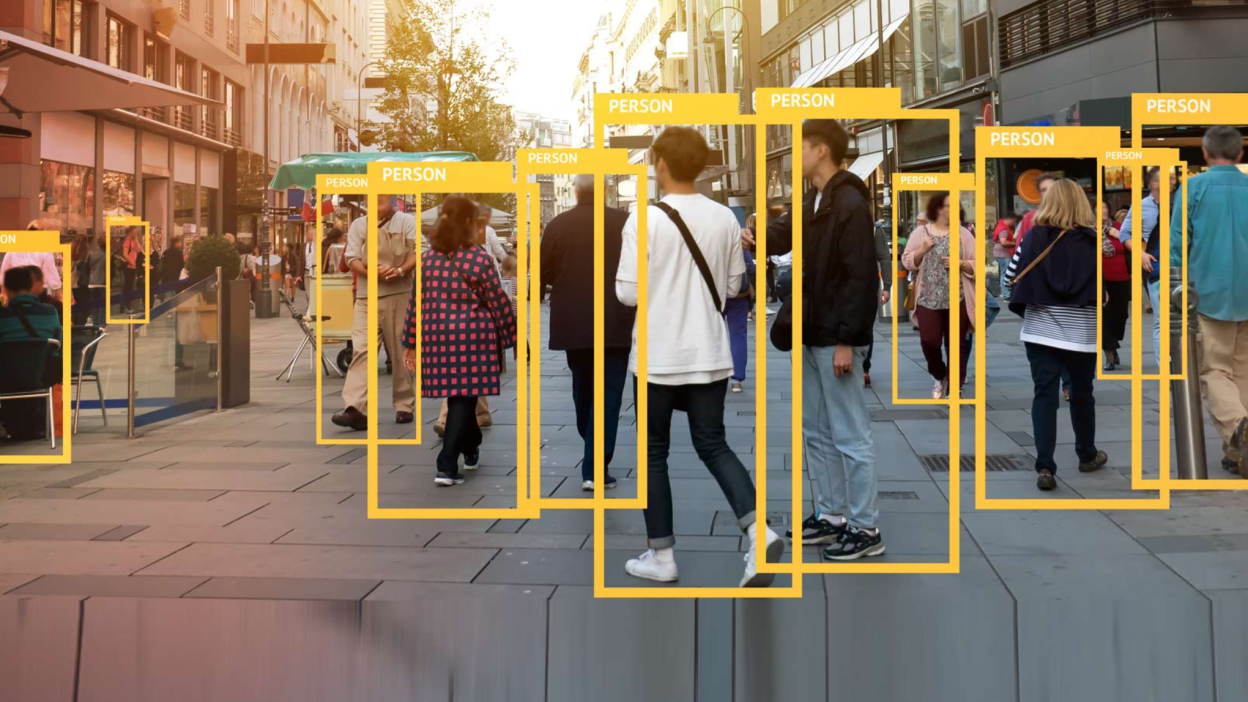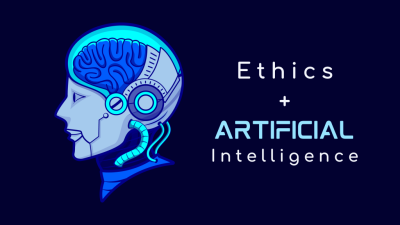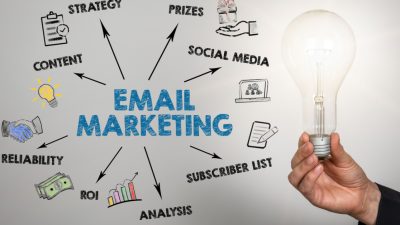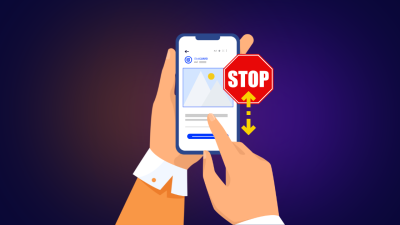Introduction
In the age of digital saturation, customers expect more than generic marketing—they demand experiences tailored to their individual needs, behaviors, and preferences. Enter hyper-personalization, a data-driven approach that goes beyond traditional segmentation to deliver truly customized interactions in real time. Let’s see Hyper-Personalization: The Future of Customer Engagement.
As we move deeper into 2025, hyper-personalization is no longer a competitive advantage—it’s a necessity. This blog explores what hyper-personalization is, how it works, the technologies driving it, and how businesses can harness it to transform customer engagement.
What Is Hyper-Personalization?
Hyper-personalization is the use of real-time data, AI, and machine learning to deliver highly relevant content, product recommendations, and experiences to individual users across channels.
🔍 Key Characteristics:
- Real-time behavioral tracking
- Predictive analytics
- Dynamic content delivery
- Context-aware messaging
- Individual-level targeting
Unlike traditional personalization (e.g., using a customer’s name in an email), hyper-personalization adapts to who the customer is, what they’re doing, and what they’re likely to do next.
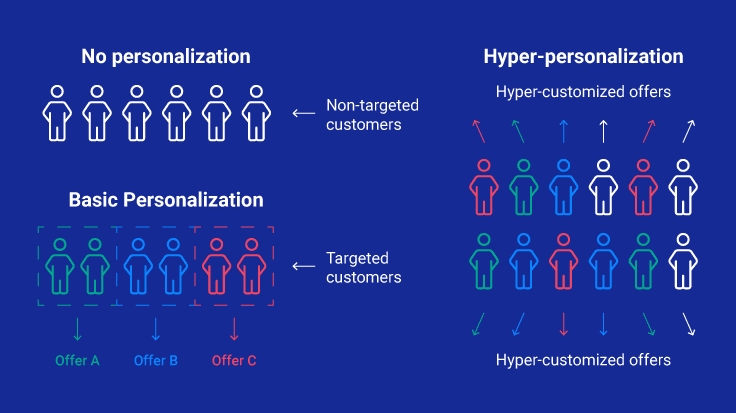
Why Hyper-Personalization Matters in 2025
📈 Consumer Expectations
- 80% of consumers are more likely to buy from brands that offer personalized experiences.
- 74% feel frustrated when content is not relevant to them.
🧠 Cognitive Overload
Hyper-personalization helps cut through the noise by delivering precisely what the customer needs, when they need it.
💰 Business Impact
- Increases conversion rates
- Boosts customer lifetime value (CLV)
- Reduces churn
- Enhances brand loyalty
How Hyper-Personalization Works
🧩 Data Collection
- Behavioral data (clicks, scrolls, purchases)
- Demographic data
- Location and device data
- CRM and transaction history
- Social media activity
🤖 AI & Machine Learning
- Predicts user intent
- Segments users dynamically
- Automates content delivery
- Learns and adapts over time
🔄 Real-Time Execution
- Personalized product recommendations
- Dynamic website content
- Triggered emails and push notifications
- Chatbot conversations tailored to user history
Technologies Powering Hyper-Personalization
🧠 Artificial Intelligence
- Natural Language Processing (NLP)
- Predictive modeling
- Recommendation engines
📊 Big Data Analytics
- Real-time data processing
- Customer journey mapping
- Sentiment analysis
🧰 Martech Stack
- CDPs (Customer Data Platforms)
- CRM systems
- Marketing automation tools
- Personalization engines
🔗 Integrations
- API-based data sharing
- Omnichannel orchestration
- IoT and wearable data
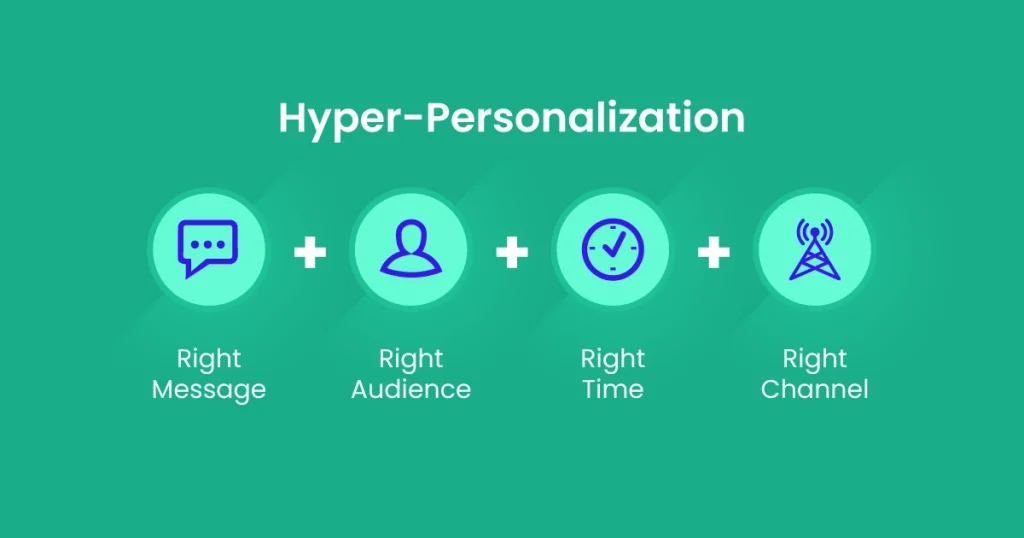
Use Cases Across Industries
🛍️ Retail & E-Commerce
- Personalized product suggestions
- Dynamic pricing and offers
- AI-powered virtual shopping assistants
🏥 Healthcare
- Tailored health content
- Appointment reminders based on history
- Personalized treatment plans
🏦 Banking & Finance
- Customized financial advice
- Transaction-based alerts
- Personalized investment recommendations
🎓 Education
- Adaptive learning paths
- Personalized course recommendations
- Real-time feedback and support
Hyper-Personalization vs Traditional Personalization
| Feature | Traditional Personalization | Hyper-Personalization |
|---|---|---|
| Data Used | Static (name, location) | Real-time behavioral data |
| Segmentation | Broad categories | Individual-level targeting |
| Content Delivery | Predefined templates | Dynamic, AI-driven |
| Timing | Scheduled | Context-aware, real-time |
| Adaptability | Limited | Continuously learning |
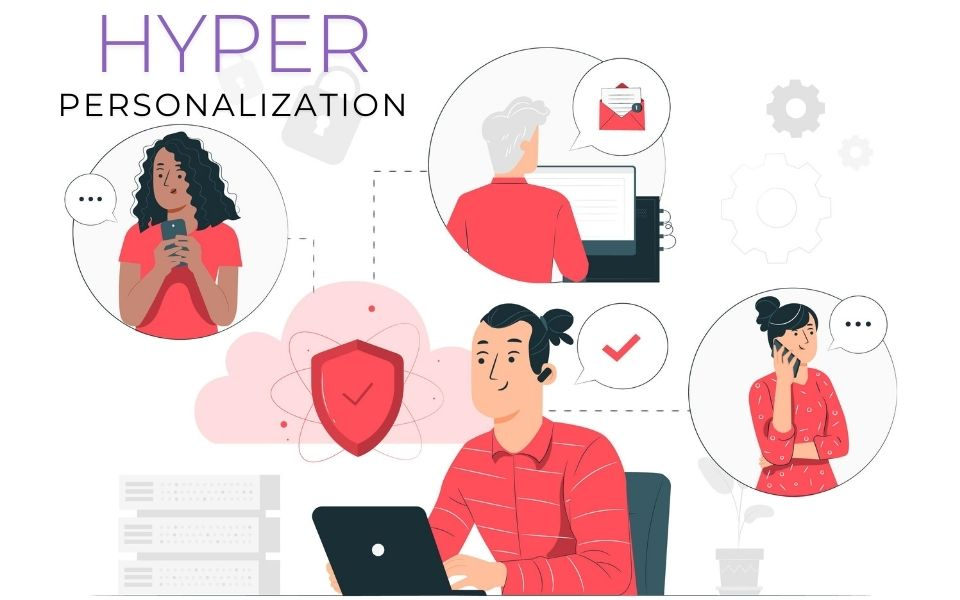
Challenges of Hyper-Personalization
⚠️ Data Privacy & Compliance
- Must comply with GDPR, CCPA, and India’s DPDP Act
- Requires transparent data usage policies
⚠️ Technology Integration
- Complex martech stacks
- Need for seamless API connections
⚠️ Content Scalability
- Requires large volumes of personalized content
- AI can help automate but still needs human oversight
⚠️ Customer Trust
- Over-personalization can feel intrusive
- Balance relevance with respect
Best Practices for Implementing Hyper-Personalization
✅ Start with Clean Data
Ensure your data is accurate, unified, and privacy-compliant.
✅ Use AI Strategically
Deploy AI for segmentation, prediction, and automation—but maintain human oversight.
✅ Focus on Value
Personalize in ways that help the customer, not just sell to them.
✅ Test and Iterate
Use A/B testing and feedback loops to refine personalization strategies.
✅ Be Transparent
Let users know how their data is used and offer opt-out options.
Tools for Hyper-Personalization
- Salesforce Marketing Cloud
- Adobe Experience Platform
- Segment (Twilio)
- HubSpot
- Dynamic Yield
- Optimizely
- Braze
- Google Optimize

Future Trends in Hyper-Personalization
🔮 Predictive Personalization
AI will anticipate needs before users express them.
🧠 Emotion-Aware Content
Content will adapt based on user mood and sentiment.
🕶️ AR/VR Personalization
Immersive experiences tailored to individual preferences.
📱 Voice & Visual Personalization
Smart assistants and visual search will deliver personalized results.
🧬 Ethical AI
Focus on fairness, transparency, and responsible personalization.
Conclusion
Hyper-personalization is not just a buzzword—it’s the future of customer engagement. By leveraging AI, real-time data, and smart automation, businesses can create experiences that feel personal, relevant, and valuable.
In 2025 and beyond, the brands that win will be those that treat every customer like a segment of one—with empathy, intelligence, and precision.


